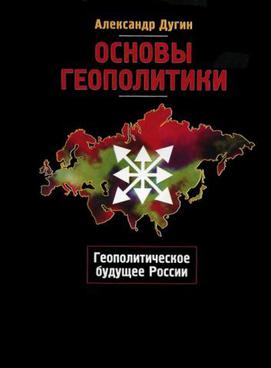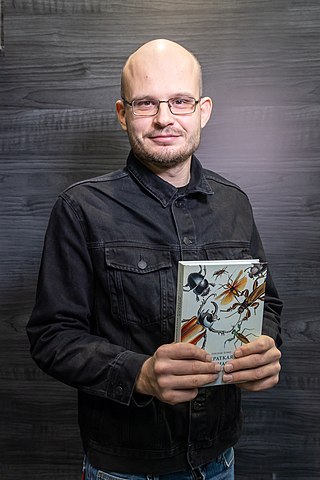Glasnost is a concept relating to openness and transparency. It has several general and specific meanings, including a policy of maximum openness in the activities of state institutions and freedom of information and the inadmissibility of hushing up problems. In Russian, the word glasnost has long been used to mean 'openness' and 'transparency'. In the mid-1980s, it was popularised by Mikhail Gorbachev as a political slogan for increased government transparency in the Soviet Union within the framework of perestroika, and the calque of the word entered into English in the latter meaning.
The Novosibirsk Report, which many scholars consider one of the first signs of perestroika, was the name given in the West to a classified paper prepared under the direction of Tatyana Zaslavskaya of the Novosibirsk Institute of Economics which addressed the crisis in the agriculture of the Soviet Union. It was the theme of a closed conference in Novosibirsk in April 1983 and leaked to the Washington Post which published it in August.

Galina Vasilyevna Starovoitova was a Soviet dissident, Russian politician and ethnographer known for her work to protect ethnic minorities and promote democratic reforms in Russia. She was shot to death in her apartment building in 1998.

Demokratizatsiya was a slogan introduced by CPSU General Secretary Mikhail Gorbachev in January 1987 calling for the infusion of "democratic" elements into the Soviet Union's single-party government. Gorbachev's Demokratizatsiya meant the introduction of multi-candidate—though not multi-party—elections for local Communist Party (CPSU) officials and Soviets. In this way, he hoped to rejuvenate the party with reform-minded personnel who would carry out his institutional and policy reforms. The CPSU would retain sole custody of the ballot box.
Uskorenie was a slogan and a policy announced by Communist Party General Secretary Mikhail Gorbachev on 20 April 1985 at a Soviet Party Plenum, aimed at the acceleration of political, social and economic development of the Soviet Union. It was the first slogan of a set of reforms that also included perestroika (restructuring), glasnost (transparency), new political thinking, and demokratizatsiya (democratization).
Demokratizatsiya may refer to:

Chekism is a term that relates to the situation in the Soviet Union where the secret police strongly controlled all spheres of society. It is also used to point out similar circumstances in post-Soviet intelligence states such as modern Russia. The term can refer to the system of rule itself, and to the underlying ideology that promotes and popularizes political police violence and arbitrariness against real and imagined enemies of the state.

Decommunization in Russia is the process of dealing with the communist legacies in terms of institutions and personnel that tends towards breaking with the Soviet past. Compared with the decommunization efforts of the other former constituents of the Eastern Bloc and the Soviet Union, it has been restricted to half-measures, if conducted at all.
Post-Soviet studies, also known as post-Soviet area studies or Former Soviet Union (FSU) studies, is a field of study within sociology and political science that emerged out of Soviet studies and Sovietology following the dissolution of the Soviet Union. The field encompasses a broad range of studies in the area of the former Soviet Union, including within Slavic studies and Central Eurasian studies, and the study of specific post-Soviet states, including: Armenianology, Baltic studies, Belarusian studies, Central Asian studies, Georgian studies, Russian studies, Ukrainian studies, and others.

The Communist Party of the Russian Soviet Federative Socialist Republic, was a communist political party in the Russian SFSR. The Communist Party of the Russian SFSR was founded in 1990. At this point, the Communist Party of the Russian SFSR being the republican branch of the Communist Party of the Soviet Union, organized around 58% of the total Communist Party membership. Politically, it became a centre for communist opponents of Gorbachev's leadership.

The Foundations of Geopolitics: The Geopolitical Future of Russia is a geopolitical book by Aleksandr Dugin. Its publication in 1997 was well received in Russia; it has had significant influence within the Russian military, police forces, and foreign policy elites, and has been used as a textbook in the Academy of the General Staff of the Russian military. Powerful Russian political figures subsequently took an interest in Dugin, a Russian political analyst who espouses an ultra-nationalist and neo-fascist ideology based on his idea of neo-Eurasianism, who has developed a close relationship with Russia's Academy of the General Staff.

The Communist Party of the Russian Federation is a communist political party in Russia that officially adheres to Marxist–Leninist philosophy. It is the second-largest political party in Russia after United Russia. The youth organisation of the party is the Leninist Young Communist League.
Electric Yerevan, also known within Armenia as No to Robbery protests, were mass protests which occurred in the summer of 2015 against a 17% hike in electricity rates within Armenia. The protests were successful in reversing the price hike and causing the sale of Electric Networks of Armenia from Inter RAO to the Tashir Group.
James Raymond Hughes is professor of comparative politics at the London School of Economics (LSE). Hughes' research interests relate to political violence and terrorism, secession, national and ethnic conflict in the former Soviet Union, the Balkans, and Northern Ireland.

The 19th All-Union Conference of the Communist Party of the Soviet Union was a party conference held by the Communist Party of the Soviet Union from 28 June to 1 July 1988. The conference was attended by 4,991 delegates.

Alevtina Vasilyevna Fedulova is a Russian political activist and former leader of the Soviet Women's Committee.

The Union of Women of Russia was a women's political organisation in Russia. Its leader was Alevtina Fedulova.

Alexander Valeryevich Khramov, also spelled Aleksandr, is a Russian paleontologist and writer. He is a senior researcher at the Paleontological Institute, Russian Academy of Sciences and writes about politics and theology as well as paleontology. Khramov is the author of three books in Russian and over thirty scientific articles, as well as popular science materials published in National Geographic, Science and Life, Elements.ru, and other periodicals.











